Strangles case identified at our Norfolk farm
A horse at our Hall farm in Norfolk has tested positive for strangles, a highly infectious respiratory disease.
Posted on 05/02/2025
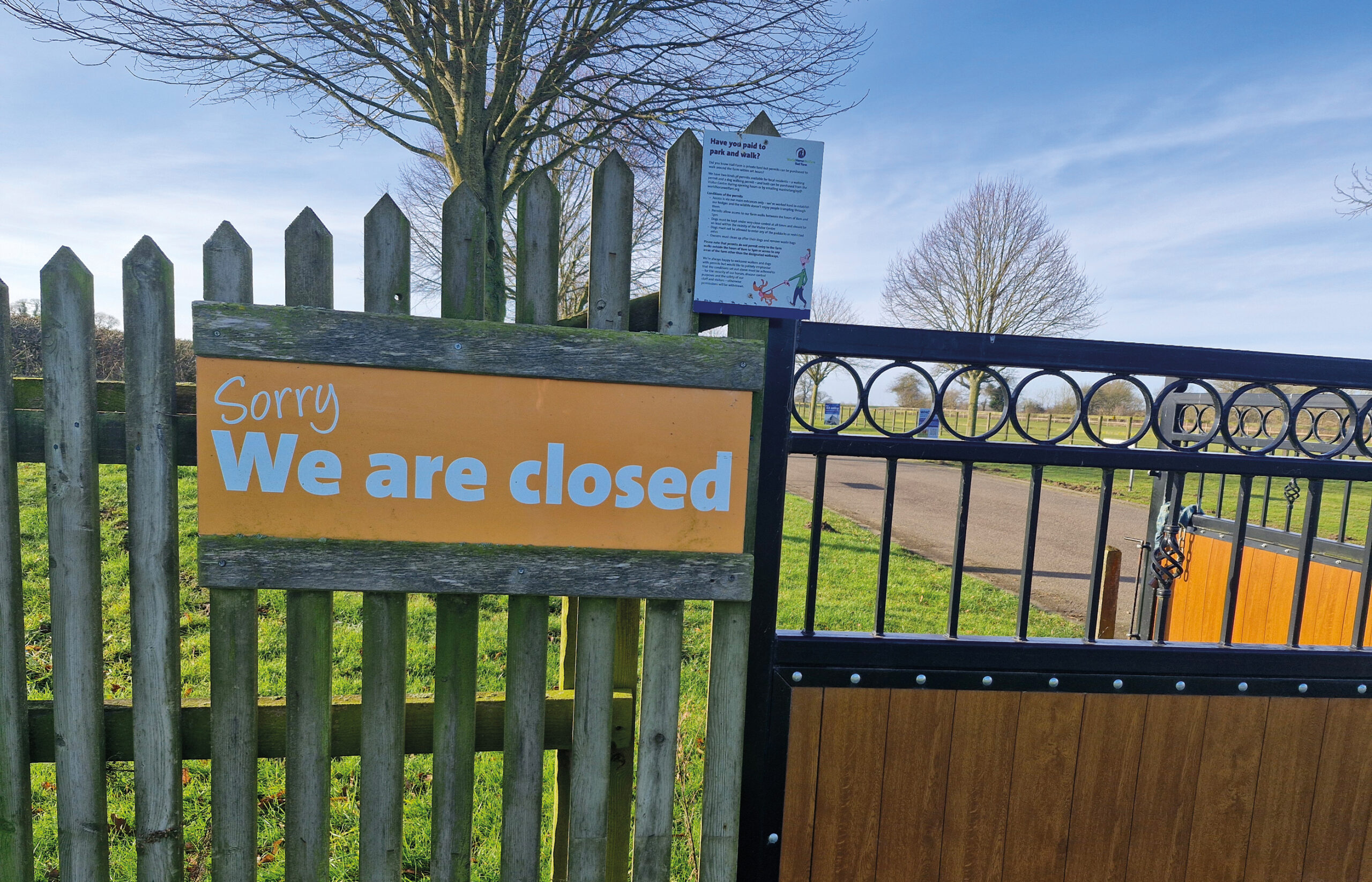
A recent arrival tested positive for the disease, which means she and any further cases will be kept isolated from the main herd and will stay that way until they recover and are no longer infectious.
Given the nature of the horses we help, cases like this are not uncommon, and the team are well-equipped to manage them effectively.
As is our protocol, all movement of horses both in and out of Hall Farm have been suspended until further notice.
As an added precaution we are also closed to the public until further notice.
Effected animals are receiving the appropriate treatment and all are expected to make a full recovery.
World Horse Welfare Hall Farm Centre Manager Sue Hodgkins said:
“As a precautionary measure, we have suspended horse movements, and we will not be able to hire the school for any equine events until we are 100 per cent confident there is no further infectious risk or cases identified.
“I know it can be scary for horse owners when they hear the word strangles, but we would like to reassure everyone this is something we are very experienced in managing. Our team are well practised in containing and treating the disease, and we are confident this case will be handled effectively.”
Strangles is not a notifiable disease but due to its prevalence and the fact it is so infectious, we are taking robust action to bring its spread to a halt and protect the wider equine population.
Several equestrian events, including a pole clinic due to take place on Sunday (February 9), have been cancelled.
Rehoming from Hall Farm will also be suspended until our rescue and rehoming centre is clear from infection.
Further updates will be posted here and on our social media channels.
For further information on disease prevention see the charity’s advice pages.
Topics
Related News
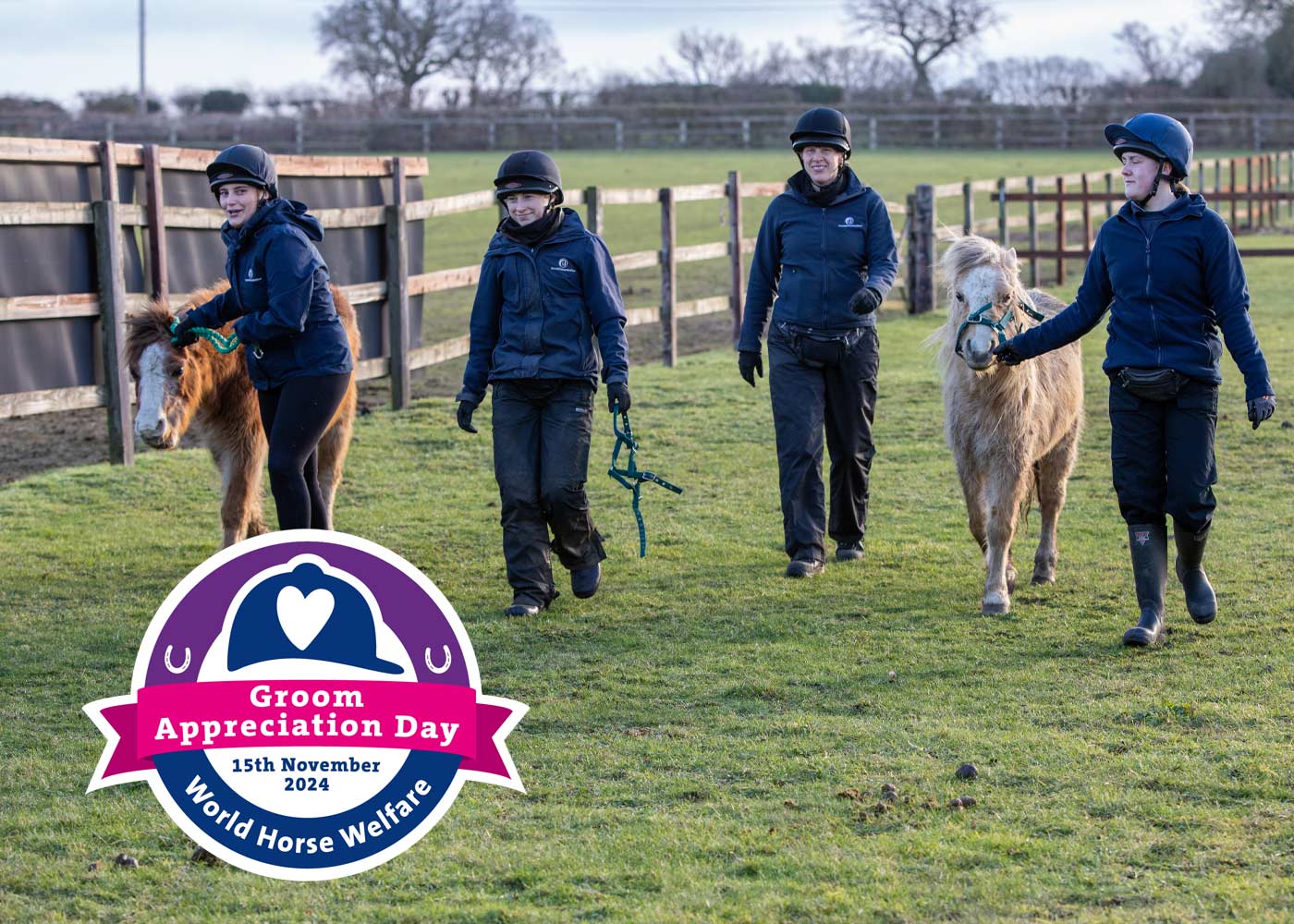
Celebrating our often-unsung heroes who work 365 days a year
We launch World Horse Welfare Groom Appreciation Day to shine a spotlight on the invaluable and inspiring work of our grooms.
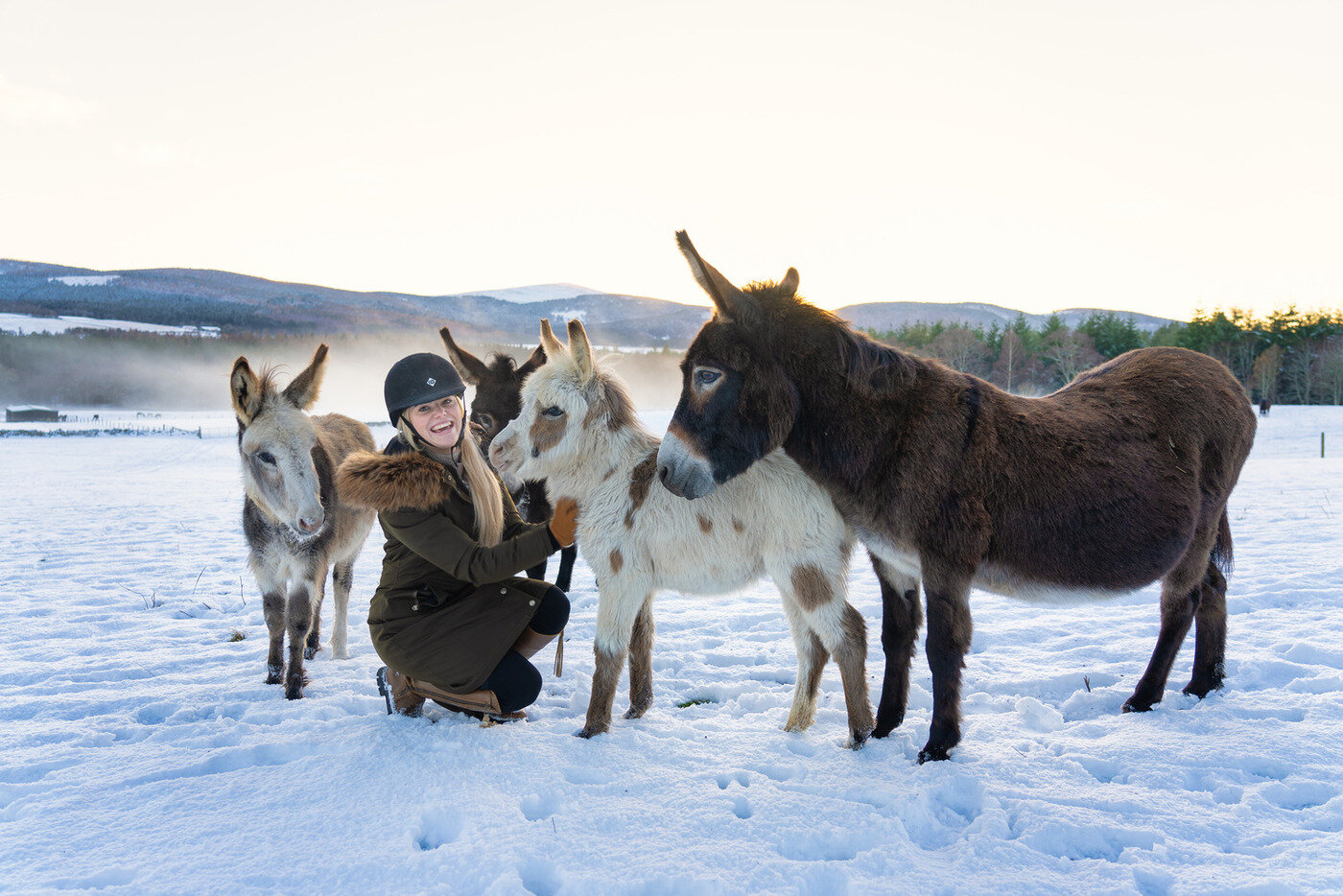
Little donkeys shine a light on our Christmas appeal
Abandoned donkey Mia and her foal Peanut take centre stage this Christmas.
Recommended Blog Posts
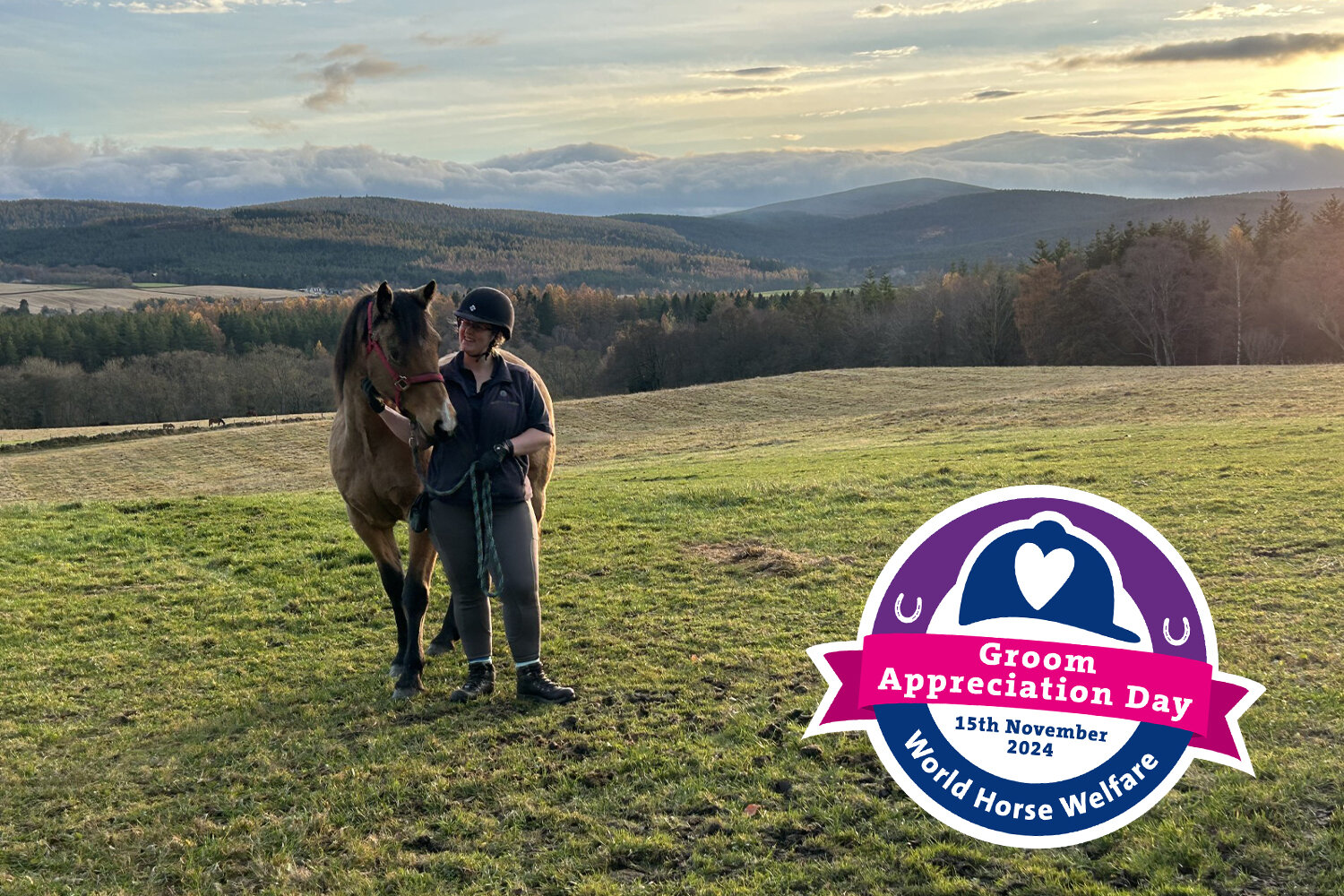
Meet some of our often-unsung heroes on Groom Appreciation Day – Abi at Belwade Farm
“All of us love the horses we care for and when things go wrong, we really feel it, as this isn't just a job for us. If we didn't love them all, we wouldn't be working here to try and make a difference.”

The senior horse: nutrition in sickness and in health
Find out more about the key considerations when caring for older horses, whether in work or retired and whatever their health status.
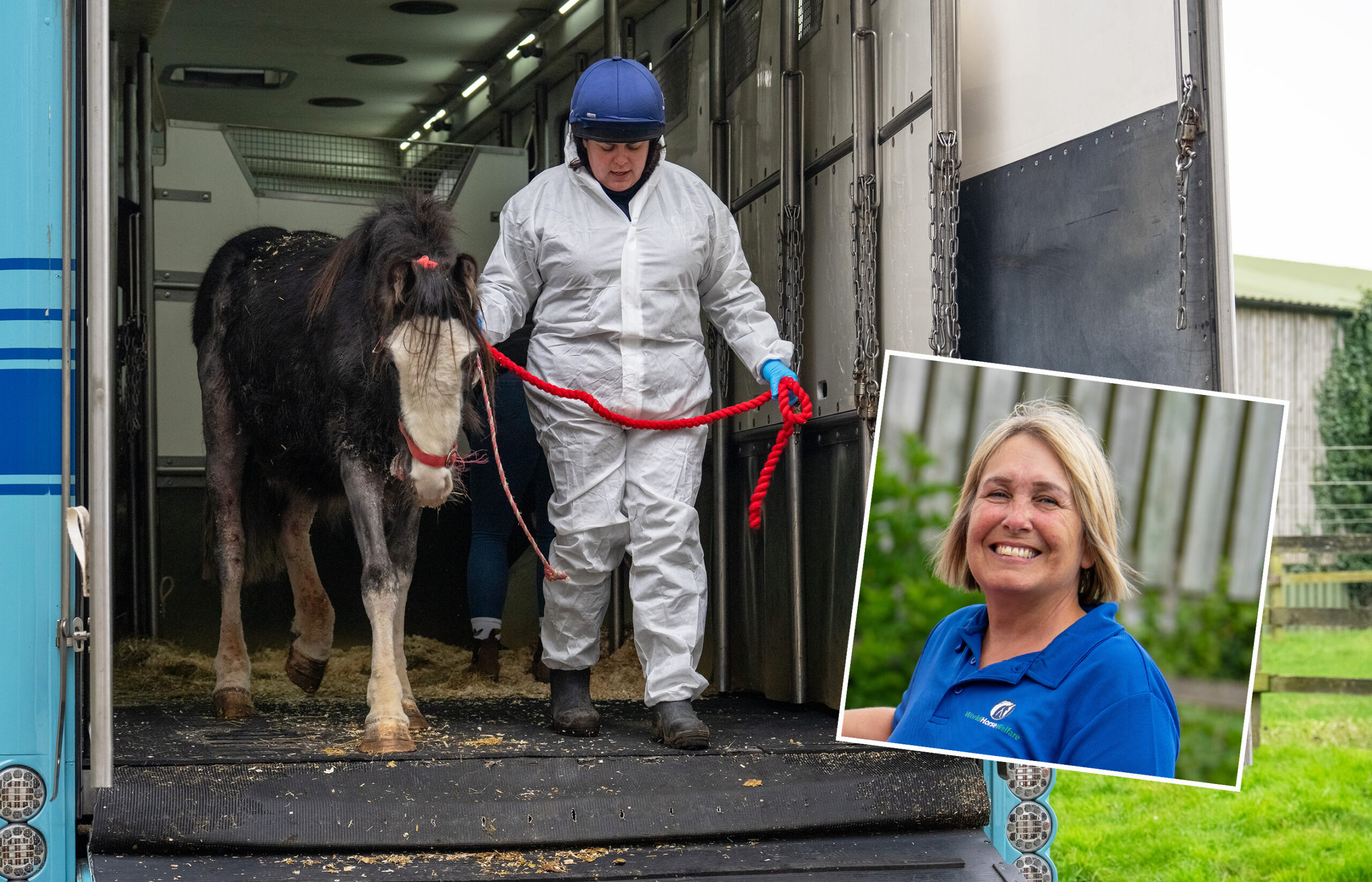
The Trafficked 20 – life in our care
Our Hall Farm Manager fills us in on how the horses rescued from illegal smuggling have settled into our care and continue to recover.
Enjoy reading stories like this?
Join over 55,000 other horse lovers and sign up for our email newsletter

Join over 55,000 other horse lovers and sign up for our email newsletter
Sign me up now